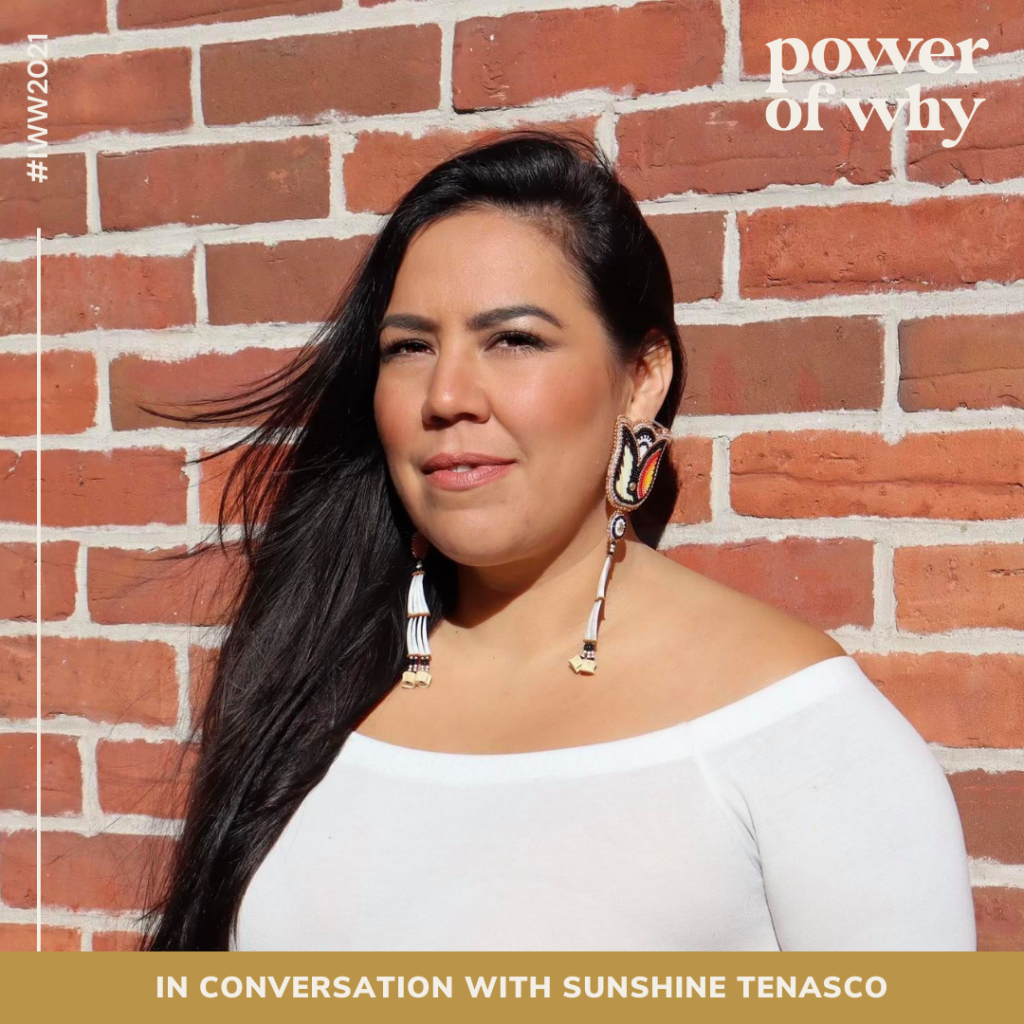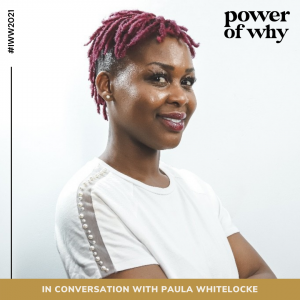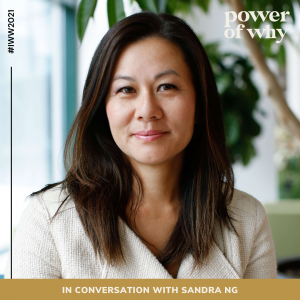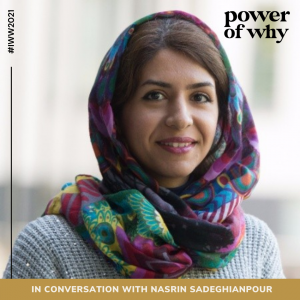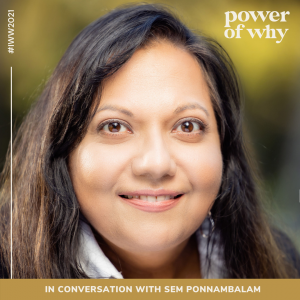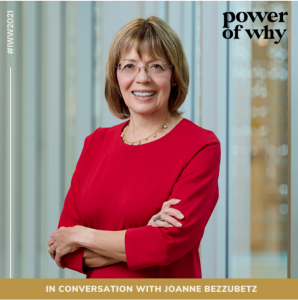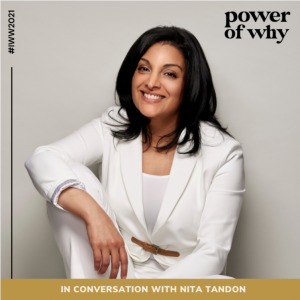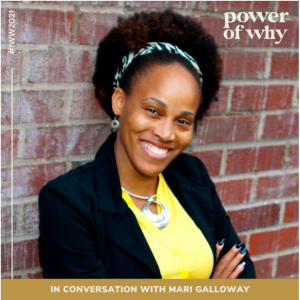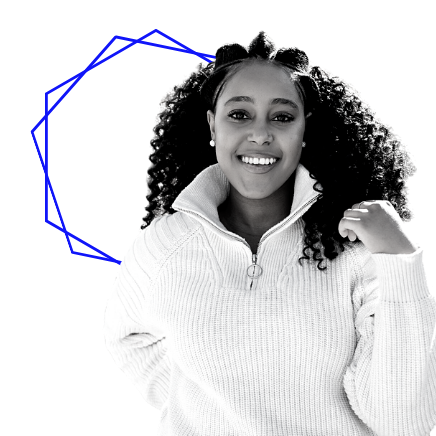This episode is for you if:
- You have a business idea, but are struggling to bring it to life
- You want to understand how a mentor can help you succeed
- Your community has an urgent need you’re determined to fill
- You feel burnt out and long to set meaningful boundaries
Looking for something specific?
[4:13] The hardest part of leaving your community
[7:23] Sunshine starts her first business: Quemeez
[14:08] Pitching on Dragon’s Den
[15:59] Mentorship’s life-changing impact
[17:17] Investing in others to cultivate opportunity
[18:21] Why Sunshine started Pow Wow Pitch
[20:56] How getting fired was a blessing in disguise
[25:52] Pivoting online — fast — during COVID-19
[28:40] Keeping entrepreneurs’ needs at the heart of her work
[32:19] The 25-year clean water crisis in First Nations communities
[34:00] Working with the David Suzuki Foundation to launch Her Braids
[36:00] The extraordinary impact of setting boundaries
[36:30] Sunshine’s greatest investment
This episode is brought to you in collaboration with Invest Ottawa. We teamed up to produce this special series in celebration of International Women’s Week, and the women leading in Ottawa. Visit investottawa.ca/iww to learn more.
Psst — Sunshine shared some great resources to help new entrepreneurs and community changemakers take action, build community, and drive meaningful change. Check them out below, with links you can access right away.
Naomi: Tell us about yourself.
Sunshine: I grew up an hour and a half from Ottawa, in Kitigan Zibi Anishinabeg. I was raised by a single mom until I was 10, when she met my stepdad, and I have two brothers I’m very close with.
I had a beautiful upbringing, with grandparents, aunties, uncles and cousins. A community raised me. I moved to Ottawa for university.
Naomi: What was it like moving to a new city?
Sunshine: On the reserve, I never had to make friends. I went to nursery, kindergarten, preschool and grade school with the same people. Off the reserve, I went straight to university, and couldn’t make friends for years.
Everyone looked and acted differently. I didn’t see myself in the classroom.
Naomi: You got your B.A. in Theatre, another B.A. in English, and a B.Ed. at the University of Ottawa. Why did you study these programs?
Sunshine: I love theatre. In our community, there was no real drama program with such a tiny population. In university I loved running shows and I did a few plays.
After my daughter was born everything shifted. I didn’t want to be away from this little human I loved, so I decided to teach drama. I didn’t teach for long before I started Quemeez, my first business.
Naomi: What motivated you to start Quemeez?
Sunshine: I was making baby moccasins for my second daughter. I brought them to the powwow one year on a whim. I didn’t know anything about business, but I knew about powwow vendors. It’s like a pop-up shop.
I brought 10 pairs to a woman I knew and offered $5 for each pair she sold. In an hour they were gone. I felt like I was onto something.
I did that all summer during powwow season. I was known as the moccasin lady. I took the leap because it felt good and right and exciting.
I went to an Economic Development Officer in my community and she completely brushed me off. I was taken aback. I saw slippers in high-end baby stores. I couldn’t keep up with how many people wanted my moccasins. Her rejection lit a fire in me to prove her wrong.
I auditioned for Dragon’s Den six days before my son was born. I was in a giant room with wild entrepreneurs and fell in love with that energy.
I went on Dragon’s Den eight weeks later with my son. He was born with down syndrome and cerebral palsy. A lot of people ask “weren’t you nervous?” but at that time I was going through so many things.
Once Dragon’s Den aired months later I felt how great of an impact it had not just on me, but on the Indigenous community.
Naomi: You mentioned that one of the dragons is your mentor. What impact has mentorship had on your life?
Sunshine: The exposure from Dragon’s Den was shocking. I worked nonstop for four months to have inventory. My pitch aired at 8 pm and I sold out by midnight. Suddenly everybody knew about Quemeez.
Brett Wilson invested in me financially, but it was more than that — he checked up on me. If there was an event, he would say “I have two tickets with your name on it, I think this would be good for you to learn.”
That’s what led to Pow Wow Pitch, so people can have someone who will champion you.
Before Dragon’s Den, I didn’t know what a pitch was, or what wholesale was. They were like, “What’s the valuation of your company?” and I was like, “Hello, Google. What does valuation mean?”
Naomi: Tell us the story behind Pow Wow Pitch.
Sunshine: I was working with Indigenous women entrepreneurs when someone told me about pitch competitions. Long story short, I got fired from an organization three weeks before Pow Wow Pitch would launch. That was a blessing, because it would have belonged to the organization.
I had a few weeks to put everything together with no sponsorship. Everybody agreed to this new meetup. They volunteered, and we secured $8,500 in cash prizes. I paid honorariums out of pocket.
I felt the impact right away. We had a group from Ladies Who Lunch who spent the whole day learning themselves. Now we have Indigenous judges and mentors. The circle is growing.
Naomi: How is Pow Wow Pitch structured? What has the transition been to online?
Sunshine: It was one full-day event at the summer solstice, the biggest powwow in the area. 25 pitchers do their first pitches in one minute. We narrow them down to 10, who get mentored over three hours by three different mentors. Then they give a three-minute pitch with some Q&A. And then we get to give away money.
Last year I decided to go to five of the biggest pow wows across Canada. Enter COVID. As an entrepreneur, you need to be able to pivot fast and hard. Luckily everyone was onboard with the shift to online.
I’m terrible with tech. The right people showed up and we pulled through. We reached Indigenous entrepreneurs that we wouldn’t have in-person. If you had an internet connection on a computer or phone you could participate.
Naomi: Let’s shift gears to your work with Her Braids. There is a clean water crisis in Canada. You’ve noted that this is the longest running water advisory, in effect for 25 years.
Sunshine: In our community you get big blue jugs of water delivered to your home, based on how many people live there. When I moved to the city I would ask people if I could drink their water.
One day a pipe broke in Gatineau and they announced it on the radio. The next hour, they announced it again. There was such a sense of urgency; even though they could still flush water and access a washer and dryer.
Why wasn’t this radio station talking about our reserve? This double standard pissed me off.
I wrote a letter to the David Suzuki Foundation, and included statistics from Indigenous Affairs and Health Canada. They said they’d love to do something, but are waiting for an Indigenous person to take the lead.
That’s where Her Braids was born. It started as a nine month fundraiser selling beaded pendants. We’re now six years in.
I gave workshops across Canada on this issue. They were often with teachers, and they’d ask if I had anything for kids. So I wrote “Nibi’s Water Song“. Nibi means water in Anishinaabemowin and it’s the name of my 15-year-old daughter.
Naomi: What’s the best investment you’ve made?
Sunshine: Taking time for myself. With Quemeez, I was overworked and stressed. Creating boundaries has been empowering, because when I show up, I do so with better, more positive energy.
Naomi: What are you focused on bringing attention to?
Sunshine: My eyes are always focused on Indigenous entrepreneurs, Indigenous empowerment, and clean water. It’s all related. When you brought up systemic racism, I didn’t know what that meant five years ago. I have rose-colored glasses, but am learning to see other people’s realities more clearly.
This episode is brought to you in collaboration with Invest Ottawa. We teamed up to produce this special series in celebration of International Women’s Week, and the women leading in Ottawa. Visit investottawa.ca/iww to learn more.








